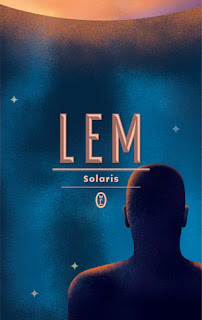Le Guin, Ursula K. "The Left Hand of Darkness" - 1969
I'm not the biggest fan of science fiction but my book club seems to select one every couple of months. What can I say, some of them are quite interesting, others not so much.
"The Left Hand of Darkness" can be fascinating in many ways. There is a different kind of life on planet Winter, it is a cold life, as the name of the planet already suggests. But it's also different to our kind of life as in all its inhabitants are ambisexual. They call it differently and anyone who is just one gender (like the inhabitants of our planet, Terra) is a pervert. Maybe this would help people who consider anyone who is not straight a weirdo. Though I doubt they would read a book like this.
So, other than making us understand the LGBTQ community better, what else is there to learn from this book. Well, the Ekumen reminded me a little of the United Nations or the European Union which have the same kind of problems because everyone wants a communion but it should, please, be moulded on their own culture.
Apparently, this book belongs to a series of novels called "The Hainish Cycle" but you are not supposed to read them all in order, they are published as single novels without any follow-up of one of the stories.
And it definitely gives us food for thought about our world and all the people living in it.
Some comments from our members:
- It gave much topics for discussion. Beside topics of what is Sci-fi, space travel, Mindspeak, gender difference, habitable ice planet, its people, politics and customs.
- I especially found the attitude towards time and societal progress interesting.
- Imo, her best book (not that I've read all of them) is The Lathe of Heaven. It's very different to her usual style. Highly recommend.
- While reading "The Left Hand of Darkness" I also reviewed Ursula Le Guin's rendition of Lao Tzu's "Tao Te Ching". It made for an enriched experience to consider the plot and characters of The Left Hand of Darkness through a Taoist lens. The shifting of Gethenian power and ways has a yin-yang quality that is very true to life.
We read this in our international online book club in August 2021.
From the back cover:
"A lone human ambassador is sent to the icebound planet of Winter, a world without sexual prejudice, where the inhabitants’ gender is fluid. His goal is to facilitate Winter’s inclusion in a growing intergalactic civilization. But to do so he must bridge the gulf between his own views and those of the strange, intriguing culture he encounters...
Embracing the aspects of psychology, society, and human emotion on an alien world, The Left Hand of Darkness stands as a landmark achievement in the annals of intellectual science fiction."
Urusla K. Le Guin has received many prizes for her works, i.a. the Hugo Award and the Nebula Award.








